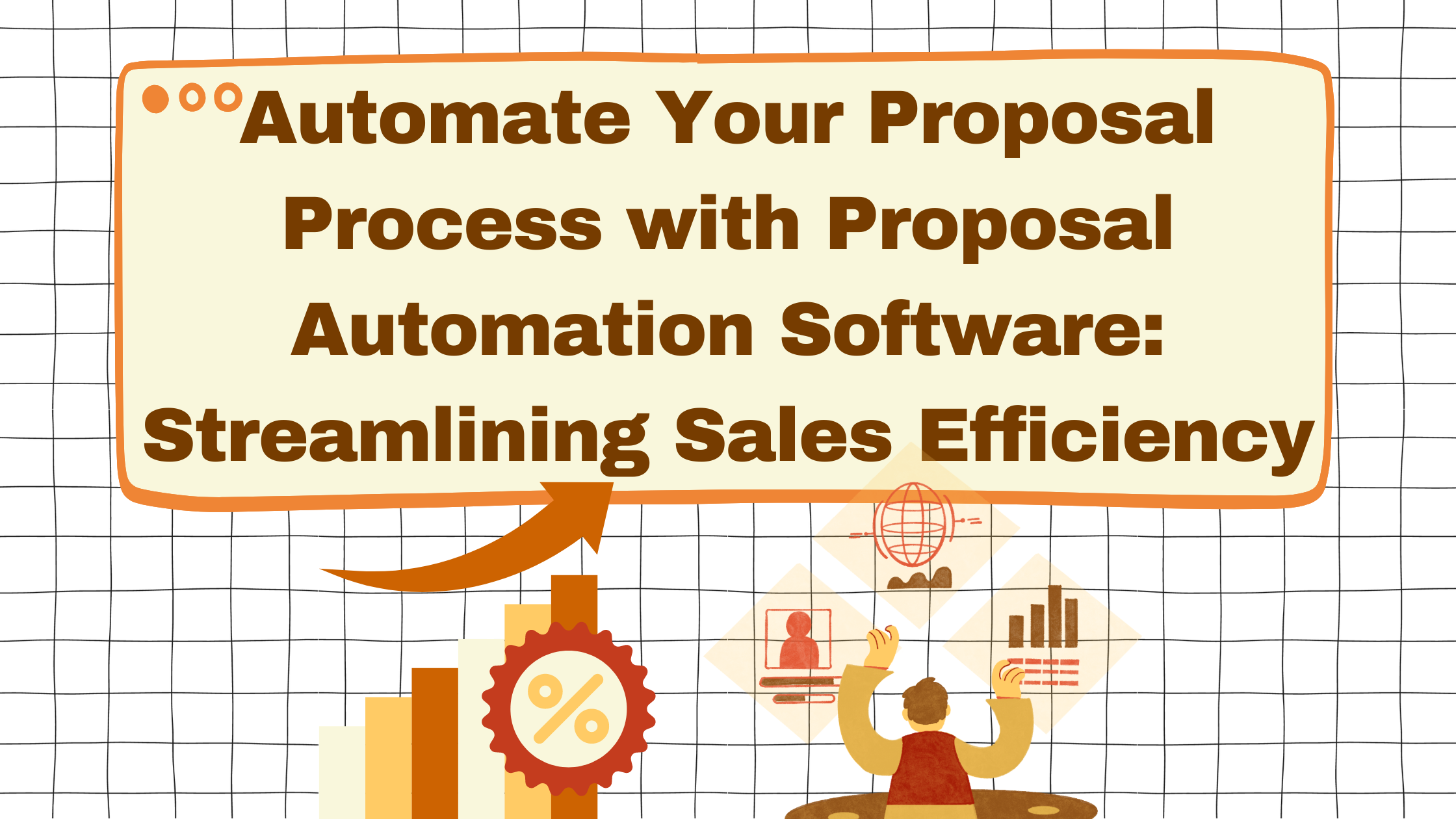In the competitive world of business development, creating compelling proposals can be the tipping point between securing a new client and missing out on an opportunity. Automation in proposal creation is not just a modern convenience; it has become a necessary tool for enhancing productivity and accuracy in business communications. By leveraging technology, businesses can streamline the complex process of proposal generation, thus freeing up valuable resources and time for higher-level strategy and client interaction. With advanced tools and software available, the task of proposal writing is transformed from daunting to doable. Below, we discuss the myriad benefits of incorporating automation into the proposal creation process.
Exploring the Efficiency Boost From Automated Proposal Creation
One of the primary advantages of automated proposal creation is the significant uptick in efficiency it brings to the table. Instead of starting each proposal from scratch, teams can utilize customizable templates that align with their brand and service offerings. This approach cuts down the time required for each proposal, allowing for a quicker turnaround and the ability to respond to more RFPs within a shorter period.
The reasons to automate proposals go beyond mere template usage; it also incorporates data handling. By automating data input, companies minimize repetitive manual entry, which is not only time-consuming but also susceptible to human error. Fields such as client details, pricing, and timelines can be populated automatically, speeding up the overall process considerably.
Moreover, automation software often comes with scheduling capabilities, ensuring that proposals reach prospects on time. Automated reminders can prompt team members to follow up or perform necessary actions, keeping the workflow smooth and uninterrupted. In turn, this maximizes workforce productivity by allocating human resources to more strategic tasks that can’t be automated.
Customization and Personalization in Automatic Proposal Generation

The notion that automated proposals are impersonal couldn’t be further from the truth. Modern proposal automation tools enable a high degree of customization and personalization, which is key to making clients feel valued and understood. These tools allow the inclusion of client-specific information and tailored solutions that speak directly to the prospective client’s pain points and objectives.
With the data-driven capabilities of automation software, proposals can feature personalized greetings, references to previous interactions, and case studies relevant to the client’s industry. This level of detail demonstrates a deep level of engagement and attentiveness, qualities that potential clients seek in service providers. The ability to customize content at scale also ensures that quality isn’t compromised in high-volume scenarios.
Additionally, customization extends to branding and visual presentation. Consistency in brand imagery, colors, and formatting is effortlessly maintained throughout the proposal. This uniformity reinforces brand identity and professionalism, which in turn can significantly influence the decisions of prospects who often perceive well-branded proposals as more credible.
Streamlining Collaboration and Approval Processes in Proposal Management
Business proposals often necessitate inputs from multiple stakeholders, including experts from technical, financial, and managerial departments. Automation tools facilitate this collaborative effort by providing a shared platform for all contributors. The centralization of proposal creation ensures that all team members can access and edit documents in real time, increasing the agility of the collaborative process.
Version control is another challenge adeptly handled by automation. Rather than disseminating multiple versions of a proposal via email, proposal automation tools can track changes and provide a clear history of edits. This functionality not only prevents the confusion of dealing with multiple document iterations but also enables a seamless review process by key decision-makers.
Monitoring Performance and Analytics With Proposal Automation Software

Insight into performance metrics is essential for businesses to refine their proposal strategies and drive growth. Proposal automation software often includes robust analytics functions that can measure various performance indicators. Tracking the success rate of proposals, identifying the most engaged sections of a document, or determining the average time for proposal completion can yield actionable insights.
These analytics enable businesses to discern which proposal elements resonate best with their target audience. By analyzing trends over time, companies can continuously update their proposal templates and strategies to align with what works, ultimately increasing their win rate. This kind of data-driven refinement is integral to maintaining a competitive edge in any industry.
Altogether, the integration of automation into proposal creation offers a compelling array of benefits. It enhances efficiency, accuracy, customization, and collaboration, all of which are vital to creating high-quality proposals that stand out in a crowded marketplace. Overall, embracing automation can lead to improved performance, better client relationships, and ultimately, a higher success rate in securing new business.

